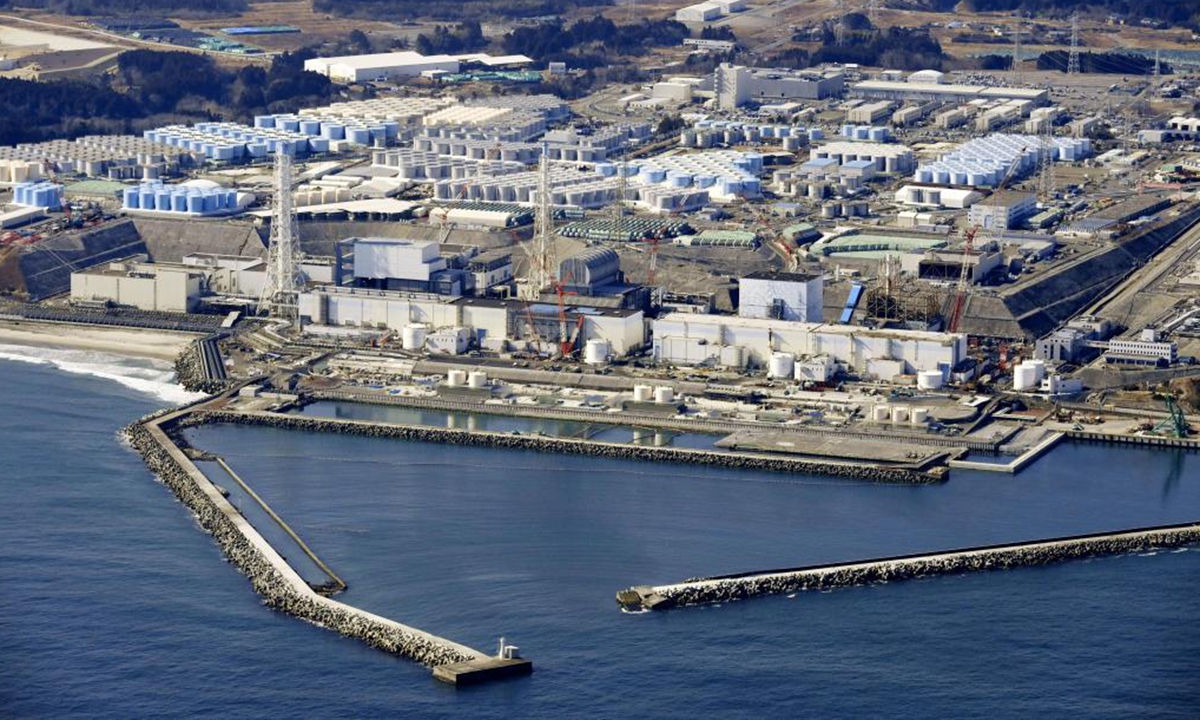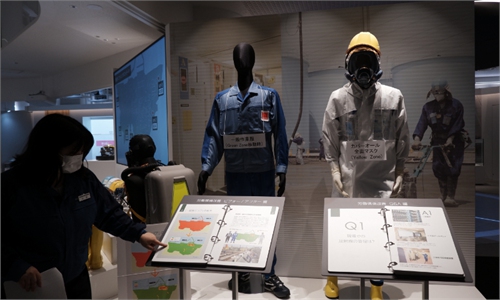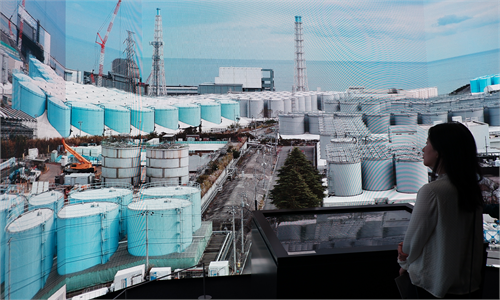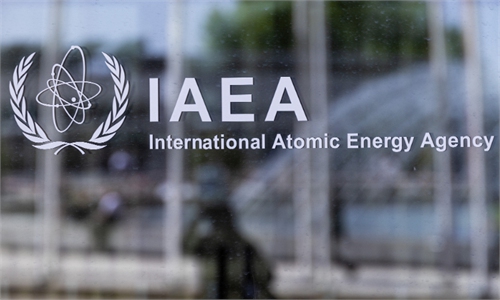Chinese environmental group launches litigation against TEPCO over radioactive wastewater dump plan

Tanks at the crippled Fukushima nuclear power plant store nuclear-contaminated wastewater. Photo: Xinhua
SIP Lvse Jiangnan Public Environment Concerned Centre (PECC), an environmental non-governmental organization (ENGO) based in Suzhou, East China's Jiangsu Province, told the Global Times on Thursday that a maritime court in China had received their complaint against Japan's Tokyo Electric Power Company (TEPCO).This means the court will decide whether to file a case within seven working days.
On Wednesday, PECC submitted a civil complaint to the court, filing a preventive environmental civil public interest lawsuit against Japan's plan to dump nuclear-contaminated wastewater into the Pacific Ocean.
"This is, to my knowledge, the first time ever on the public record that a Chinese ENGO filed a complaint against TEPCO over its dumping plan," Wang Hui, a research fellow from the School of Law, Shanghai Maritime University, and expert in marine environmental public interest litigation, said in an interview with the Global Times.
The intention of PECC is "to stop the defendant's infringing behavior of discharging nuclear-contaminated water into the sea and to order it to bear civil liability commensurate with its fault," read a statement published in Chinese, English, and Japanese on the organization's official WeChat account.
In the complaint obtained by the Global Times, the organization put forward five major demands, including asking the court to order TEPCO to withdraw the dumping plan, paying for China's costs of monitoring, investigation, evaluation, and research in the prevention of damage to the Fukushima radioactive wastewater and issue a public apology for the "reckless, unilateral and incorrect handling and discharging of the wastewater."
According to Wang, previous litigation research in China on TEPCO's wastewater dumping has mostly focused on how to initiate lawsuits against Japan, the country, and its government. However, a transnational, public interest litigation from Chinese civil society against TEPCO for possible environmental damage provides us with a new way of thinking and plan to address the issue, he said.
"There are actually a lot of ways for Chinese civil society to try to stop the dumping plan," Wang noted.
At the same time, PECC's complaint highlights the Chinese civil society's deep concern over Tokyo and TEPCO's decision to dump nuclear-contaminated wastewater into the ocean.
Since the Japanese government two years ago decided to dump more than a million tons of radioactive wastewater from the Fukushima Daiichi Nuclear Power Plant into the sea starting in 2023, civil actors in the countries around the Pacific, including China, South Korea, and Pacific Island nations, has constantly voiced out their concerns about the plan, worrying their health and environment might be affected by the wastewater.
Fang Yingjun, the founder of PECC, told the Global Times on Wednesday that the preparation work for filing this complaint was initiated last year with the help of environmental, legislative and translation professionals.
"As our next step, we will launch a global campaign of environmental groups and individuals from around the world to file a joint action against TEPCO," Fang said, adding that they are even ready to turn to the International Court of Justice and fight for decades if they have to.
Fang said that he feels "a sense of mission" of safeguarding the global marine ecological environment and public health. The wrong behavior of dumping nuclear-contaminated wastewater into the sea concerns everyone and all oceans on our planet, and it must be stopped, he noted.
Over the past two years, Japan has been pushing through the ocean discharge plan in disregard of the legitimate concerns and opposition from various quarters, and even attempted to rope other countries into supporting the plan and downplay or cover up the harm it will cause, said Foreign Ministry Spokesperson Mao Ning at the regular press conference on Tuesday.
The world needs to stand together against such an irresponsible, beggar-thy-neighbor approach, she added.
"What Japan needs to do now is to face up to the legitimate concern of the international community, have thorough and meaningful consultations with stakeholders including its neighbors, fully explore and assess the alternatives to ocean discharge to ensure that the nuclear-contaminated water is handled in a scientific, open, transparent and safe manner, and minimize the likelihood of imposing unpredictable risks on the international community," noted Mao.
In January 2023, a Japanese official confirmed that the dumping is expected to begin "sometime during this spring or summer," according to a BBC report. Preparation work had begun as early as March.



